Featured Resource
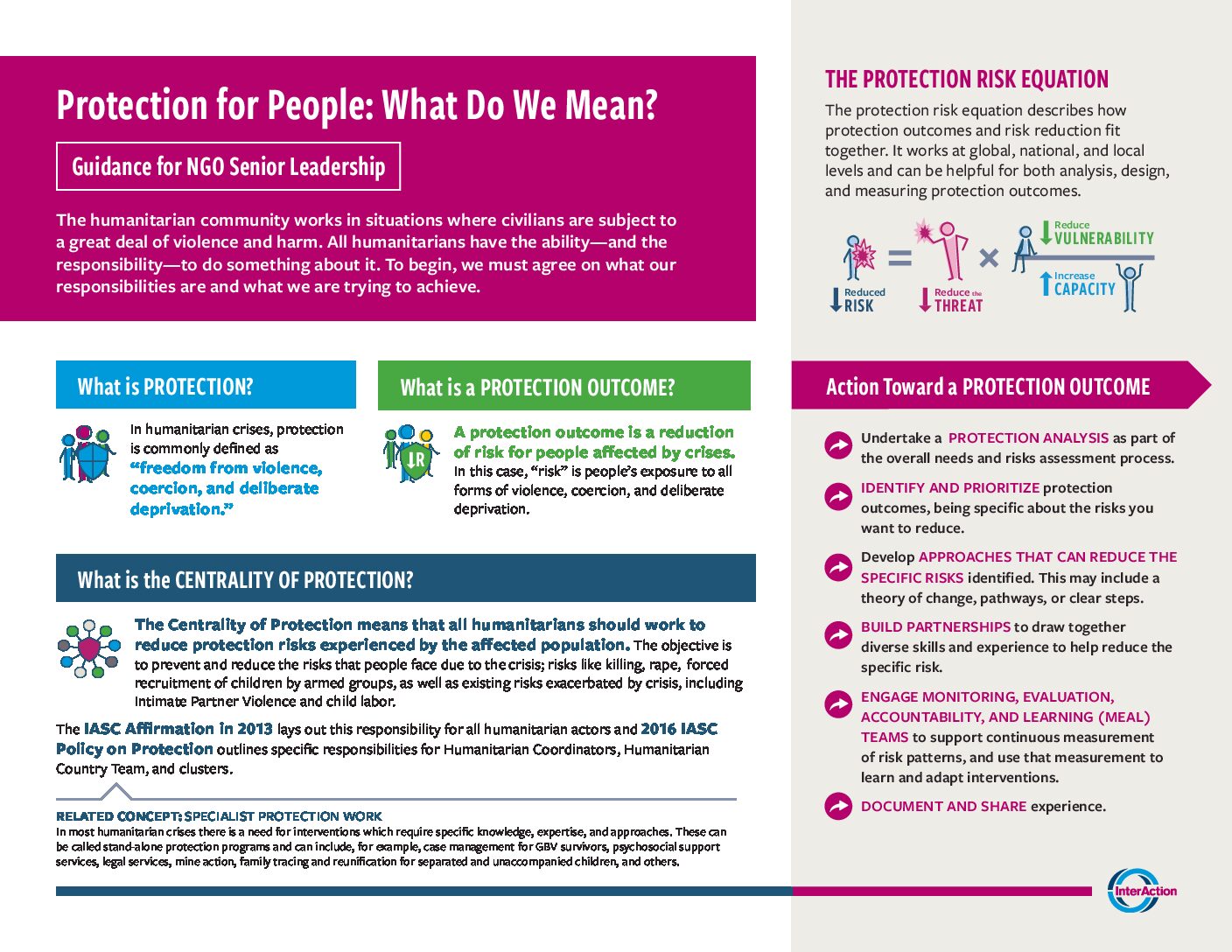 5419
Protection for People: What Do We Mean? Guidance for Senior Leadership
5419
Protection for People: What Do We Mean? Guidance for Senior Leadership

InterAction has published and collected resources including tools, reports, project evaluations, blogposts, and others from Members and partners that promote results-based approaches to protection since 2012; all of which can be found in this resource library. To explore practical case examples of RBP in practice, visit the case example page. Background photo By: Simon Moricz Sabjan is licensed under the CC BY-NC 4.0 license.
The monitoring and evaluation of adaptive learning is an emergent field. Although there is a growing body of literature on adaptive programming more generally, there is a limited knowledge base on the monitoring and evaluation of adaptive learning interventions and their impacts. Unlike other implementation strategies or program management approaches, there are no standard metrics or monitoring and evaluation frameworks to track the integration, implementation, and effectiveness of adaptive learning in health programming. As a result, USAID has released a landscape review on measuring and monitoring adaptive learning.
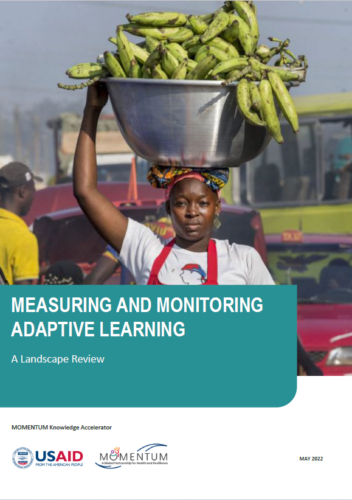
Though relatively new, there is a substantive body of work that indicates that SCLR is effective. With its partners, L2GP has published a paper titled ‘Survivor and Community-led response: Practical Experience and Learning by Justin Corbett, Nils Carstensen and Simone DI Vicenz.
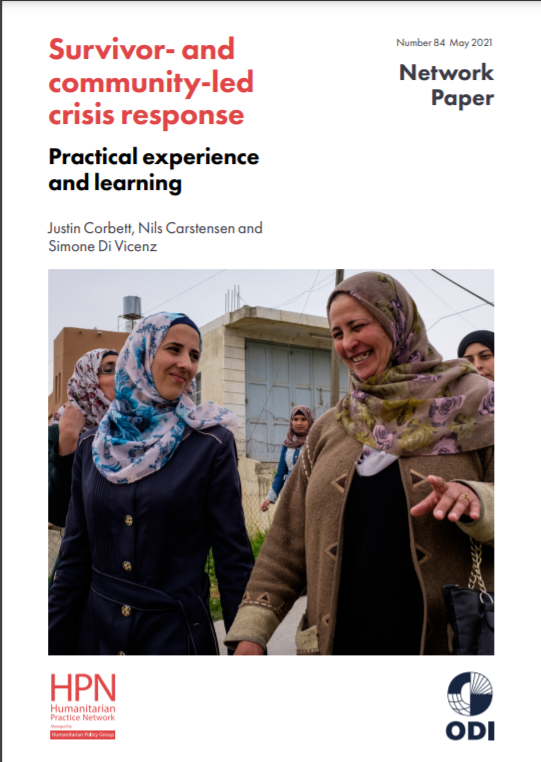
In fall of 2017, InterAction initiated a Call for Examples of tools, methods, and approaches which collect and analyze data and measure changes in protection risks and protection outcomes.

In a recent blog post with the American Evaluation Association, the University of British Columbia Learning Lab shared their Voices UP! community theatre approach to make the results of a recent evaluation accessible to a broader community audience.
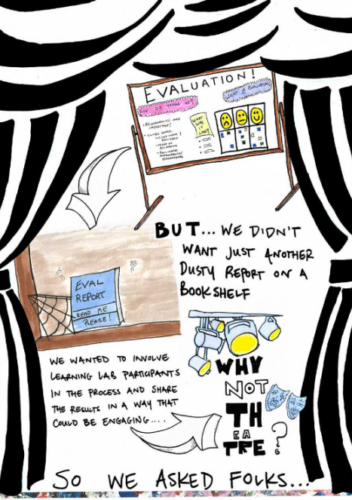
The L2GP studies explore how people living in areas affected by natural disasters and complex emergencies understand ‘protection’ – what do people value, and how do they go about protecting themselves, their families and communities?

This USAID Learning Lab podcast focuses on the learning component of Collaborating, Learning, and Adapting (CLA) at the project and organizational levels.
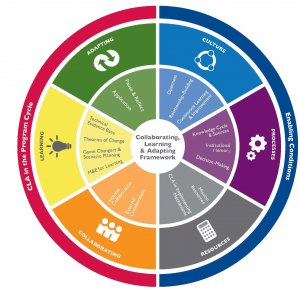
Supporting the exploration of a key element of results-based protection, InterAction hosted a webinar to unpack how a diversity of actors are conducting continuous context-specific analysis of risk as a basis for strategy development, program design, management of security risks, and program implementation.
"*" indicates required fields